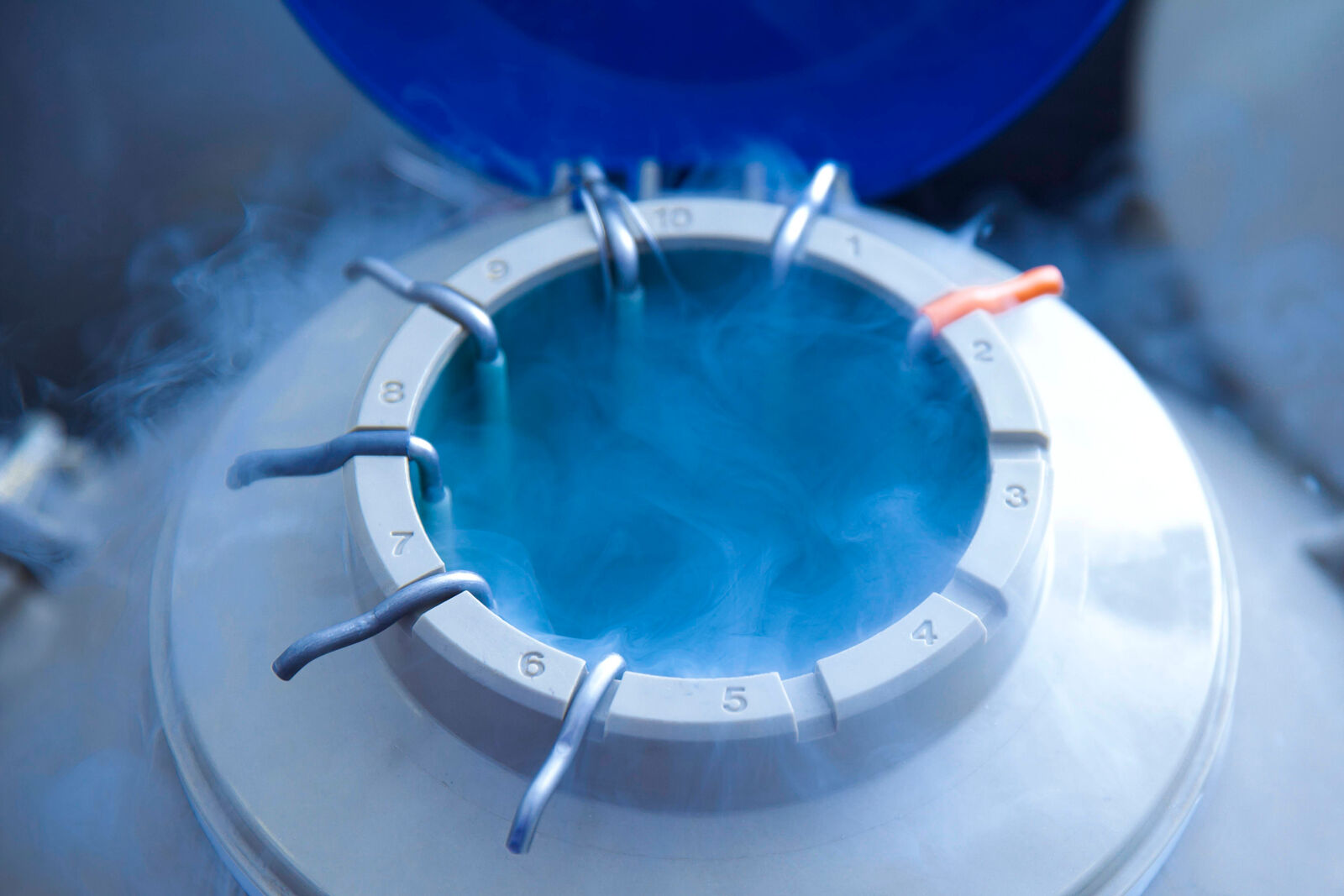
Preserving Fertility
Fertility preservation is the freezing (cryopreservation or vitrification) of eggs, sperm or embryos for potential later use.
It may be advised for medical reasons, such as when illness or medication may compromise the health and fertility of the reproductive system.
The Heartland team offers several options to preserve your fertility potential for the future.

Egg Freezing
Studies show the benefits of fertility preservation that the sooner eggs are frozen, the better the chance of success. As age increases, the quantity and quality of eggs decline. Fertility preservation is often recommended for cancer patients. It is well known that cancer therapies such as chemotherapy and radiation, as well as other disease, illness, surgery or medication may compromise the reproductive system. It is ideal to preserve eggs through freezing before the age of 35 or before undergoing any medical treatment from which sterility may result. A conversation with our physicians and assessments will help determine if egg freezing is a viable option for you.
Have the freedom to choose when to start your journey to parenthood. Elective egg freezing is also available.
Sperm Freezing (Sperm Preservation)
Sperm freezing is a process that makes it possible to store sperm samples for future use. A fertility specialist at Heartland Fertility can help you determine if this is a viable option for you. It is also possible for the partner of a patient undergoing In Vitro Fertilization or IUI to freeze sperm ahead of time if they are not going to be available or are concerned they may be unable to produce a sperm sample the day of the procedure.
As a rule, sperm react well to the freezing process. Sperm samples stored this way can therefore be preserved for several years.
Embryo Freezing (Embryo Preservation)
Frozen embryos have been used successfully in reproductive medicine for many years. While there is no guarantee that every frozen embryo will result in pregnancy, this option is currently the most successful for preserving fertility.
The freezing of embryos can be particularly useful in situations such as:
To possibly improve pregnancy outcomes.
To avoid possible medical risks of ovarian hyper-stimulation syndrome (OHSS)
For a second pregnancy from the same IVF treatment
When, for any reason, a fresh embryo transfer is not an option
Ready to get
started?
We make it easy to begin. Whether you're interested in IUI, IVF, or fertility testing, our compassionate team is here with expert care and guidance, so you can take your next step with confidence.